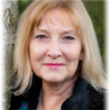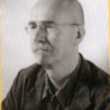The women of Rothschild: the untold story of the world's most famous dynasty
Description
In The Women of Rothschild, Natalie Livingstone reveals the role of women in shaping the legacy of the famous Rothschild dynasty, synonymous with wealth and power.From the East End of London to the Eastern seaboard of the United States, from Spitalfields to Scottish castles, from Bletchley Park to Buchenwald, and from the Vatican to Palestine, Natalie Livingstone follows the extraordinary lives of the Rothschild women from the dawn of the nineteenth century to the early years of the twenty-first. As Jews in a Christian society and women in a deeply patriarchal family, they were outsiders. Excluded from the family bank, they forged their own distinct dynasty of daughters and nieces, mothers and aunts. They became influential hostesses and talented diplomats, choreographing electoral campaigns, advising prime ministers, advocating for social reform, and trading on the stock exchange. Misfits and conformists, conservatives and idealists, performers and introverts, they mixed with everyone from Queen Victoria to Chaim Weizmann, Rossini to Isaiah Berlin, and the Duke of Wellington to Alec Guinness, as well as with amphetamine-dealers, suffragists and avant-garde artists. Rothschild women helped bring down ghetto walls in early nineteenth-century Frankfurt, inspired some of the most remarkable cultural movements of the Victorian period, and in the mid-twentieth century burst into America, where they patronized Thelonious Monk and drag-raced through Manhattan with Miles Davis. Absorbing and compulsive, The Women of Rothschild gives voice to the complicated, privileged, and gifted women whose vision and tenacity shaped history.
More Details
9781250855961
Table of Contents
From the Book - First U.S. edition.
Similar Titles From NoveList
Similar Authors From NoveList
Published Reviews
Publisher's Weekly Review
Historian Livingstone (The Mistresses of Cliveden) delivers a comprehensive and colorful group biography of the women of the Rothschild dynasty. The family tree begins with matriarch Gutle Schnapper (1753--1849), whose dowry enabled her husband, Mayer Amschel Rothschild, to start building the family's banking empire. The mother of five boys and five girls, Gutle's female descendants spread across Europe, hobnobbing with prime ministers and celebrities, lobbying popes and rabbis for social reform, and even breaking Nazi codes at Bletchley Park. The most recent generations profiled include entomologist Miriam Rothschild (1908--2005), known the "Queen of Fleas"; her sister Nica (1913--1988), a patron of jazz musicians including Thelonious Monk; and her daughter Rosie (1945--2010), a psychotherapist and feminist art historian. Livingstone expertly mines diaries, memoirs, and letters for vivid anecdotes, including Miriam's description of her and her siblings' romantic suitors as "erotic appendages," and illuminates how her subjects pushed back against anti-Semitism and their family's "male culture" (Mayer Amschel Rothschild's will "explicitly forbade his female descendants or the wives of any male descendants from having any share in the bank's wealth, or in its decision-making processes") to take their place in the world. This sparkling history is full of riches. (Oct.)
Library Journal Review
The name Rothschild resonates throughout history as a powerful banking dynasty run by men. While correct, this is only part of the story of this talented and resourceful family. Livingstone's (The Mistresses of Cliveden) new chronicle of some Rothschild women is a welcome addition to the family annals. Gutle Schnapper married Mayer Amschel Rothschild in 1770 in Frankfurt. They had 10 children who lived to adulthood, one of whom--Nathan--settled in London in 1798 and established the English branch of the family. Denied a role in banking decisions by Mayer Amschel's will, Rothschild women often worked in the shadows to ensure the dynasty's success. But Nathan was ably assisted by his wife, Hannah, who instructed her sons in important business dealings after her husband's death. Other Rothschild women followed where Hannah led. These women instinctively understood noblesse oblige, with subsequent generations using their influence in liberal politics, art, music, literature, conservation, education, and social services. Some played a crucial role in the formation of Israel. VERDICT Livingstone's vital and compelling book fills a gap in Jewish and women's history and will appeal to readers of both. The book includes extensive notes, an index, and a very helpful family tree.--Penelope J.M. Klein
Kirkus Book Review
A multigenerational portrait of a powerful family. From its origins in a Jewish ghetto in Frankfurt, the family of Meyer Anshel Rothschild (1744-1812) and his wife, Guttle Schnapper (1753-1849), spawned an extraordinary financial dynasty that spread throughout the world. Since Meyer's will specifically excluded his "daughters and sons-in-law and their heirs" from any share in his businesses, histories of the influential family have focused almost exclusively on men--an omission that historian Livingstone rectifies in a richly textured narrative. Drawing on archives, memoirs, and published sources, the author focuses on the British branch of the family, examining eight generations of Rothschild women whose influence reached into politics, literature, social reform, Zionism, science, and the arts. Although they did not participate directly in the family's financial strategies, a few served as confidantes and advisers to their husbands; others exercised deft political machinations in gatherings at their sumptuous country houses and London salons. The family's immense wealth made them welcome in British aristocracy--or, at least, tolerated by some of its more virulently antisemitic members. The wives knew that "as German Jews in a Christian society and women within a fiercely patriarchal family," they needed to act judiciously. Despite servants and luxury, for most of them, being a Rothschild wife "was stressful and thankless work." One husband referred to his wife as "an essential piece of furniture." Livingstone recounts sustaining friendships among some of the women, rivalries that erupted among others, and illnesses, deaths, betrayals, and sorrow that befell many. They were scrutinized within the family (when they married outside of the faith, for example) and subjected to gossip. If being a Rothschild gave them privileges, the author clearly reveals their vulnerability to tumultuous events--from the French Revolution through 20th-century wars--and the shattering social and cultural changes that affected each Rothschild wife, daughter, niece, and granddaughter. An engaging, authoritative, and refreshingly intimate history. Copyright (c) Kirkus Reviews, used with permission.
Library Journal Reviews
In Race and Reckoning, Cose (The Rage of a Privileged Class) argues that throughout U.S. history racial bias has always shaped key decisions and events (25,000-copy first printing). Ten years in the making, journalist Fairbanks's The Inheritors follows three everyday South Africans over five decades to reveal how the end of apartheid unfolded. From Hager, historian-in-residence at the Presidential Pet Museum, All-American Dogs is organized by historical era to chronicle the 31 U.S. presidents who have kept canines within petting distance at 1600 Pennsylvania Avenue (100,000-copy first printing; four-color illustrations). Ranging from the early 1800s to the early 2000s, Livingstone reveals the manifold accomplishments of The Women of Rothschild (40,000-copy first printing). In Code Gray, ER physician Nahvi highlights the daily ethical questions faced by doctors in his position (50,000-copy first printing). In Nerd, New York Times critic at large Phillips, who writes about theater and poetry as well as film, shows how pop-culture fan favorites from Star Wars to Buffy the Vampire Slayer to Doctor Who have shaped her—and have much to tell us about society at large (50,000-copy first printing). A multi-award-winning British author who specializes in French history and culture—his biographies of Hugo, Rimbaud, and Balzac were all New York Times Best Books—Robb now gives us France from Gaulish times 'til COVID-19. Journalist-turned-money manager Steinmetz (The Richest Man Who Ever Lived) introduces us to an American Rascal—Jay Gould, richer than Rockefeller or even Croesus and the reason Wall Street's first financial reforms were instituted (50,000-copy first printing). Pulitzer Prize-winning, New York Times best-selling science writer Yong reveals how animals other than humans perceive their surroundings in An Immense World.
Copyright 2022 Library Journal.Library Journal Reviews
The name Rothschild resonates throughout history as a powerful banking dynasty run by men. While correct, this is only part of the story of this talented and resourceful family. Livingstone's (The Mistresses of Cliveden) new chronicle of some Rothschild women is a welcome addition to the family annals. Gutle Schnapper married Mayer Amschel Rothschild in 1770 in Frankfurt. They had 10 children who lived to adulthood, one of whom—Nathan—settled in London in 1798 and established the English branch of the family. Denied a role in banking decisions by Mayer Amschel's will, Rothschild women often worked in the shadows to ensure the dynasty's success. But Nathan was ably assisted by his wife, Hannah, who instructed her sons in important business dealings after her husband's death. Other Rothschild women followed where Hannah led. These women instinctively understood noblesse oblige, with subsequent generations using their influence in liberal politics, art, music, literature, conservation, education, and social services. Some played a crucial role in the formation of Israel. VERDICT Livingstone's vital and compelling book fills a gap in Jewish and women's history and will appeal to readers of both. The book includes extensive notes, an index, and a very helpful family tree.—Penelope J.M. Klein
Copyright 2022 Library Journal.Publishers Weekly Reviews
Historian Livingstone (The Mistresses of Cliveden) delivers a comprehensive and colorful group biography of the women of the Rothschild dynasty. The family tree begins with matriarch Gutle Schnapper (1753–1849), whose dowry enabled her husband, Mayer Amschel Rothschild, to start building the family's banking empire. The mother of five boys and five girls, Gutle's female descendants spread across Europe, hobnobbing with prime ministers and celebrities, lobbying popes and rabbis for social reform, and even breaking Nazi codes at Bletchley Park. The most recent generations profiled include entomologist Miriam Rothschild (1908–2005), known the "Queen of Fleas"; her sister Nica (1913–1988), a patron of jazz musicians including Thelonious Monk; and her daughter Rosie (1945–2010), a psychotherapist and feminist art historian. Livingstone expertly mines diaries, memoirs, and letters for vivid anecdotes, including Miriam's description of her and her siblings' romantic suitors as "erotic appendages," and illuminates how her subjects pushed back against anti-Semitism and their family's "male culture" (Mayer Amschel Rothschild's will "explicitly forbade his female descendants or the wives of any male descendants from having any share in the bank's wealth, or in its decision-making processes") to take their place in the world. This sparkling history is full of riches. (Oct.)
Copyright 2022 Publishers Weekly.





























